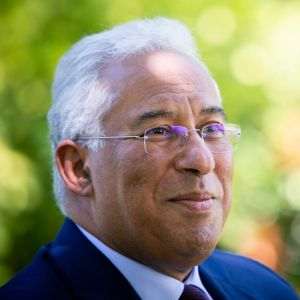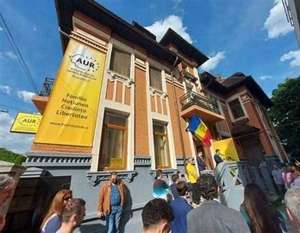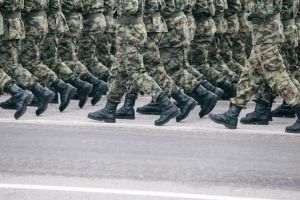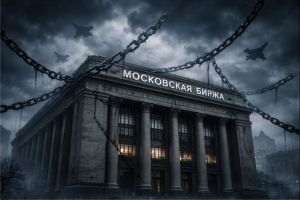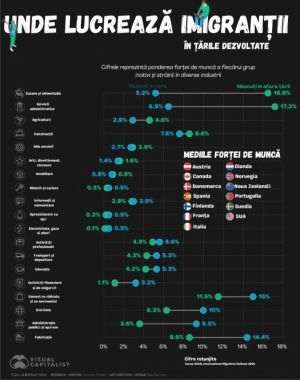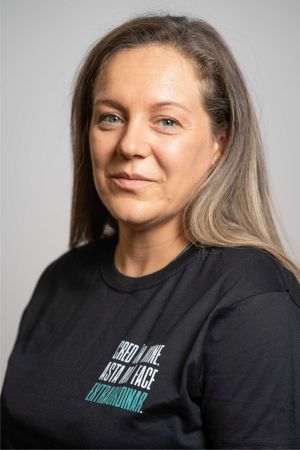Over the last few years, as senior negotiator of the nuclear program of the Islamic Republic of Iran, I have been in contact with various parties from countries and from international organizations, and the fundamental and essential question of the public concerning Iran's peaceful nuclear program has focused on this particular sentence: "What are the objectives of the Islamic Republic of Iran in conducting a peaceful nuclear program?"
During the dialogue with all the parties, our attention and focus has always been on the introduction of what was called the peaceful nuclear program of the Islamic Republic of Iran.
In principle, it has always been observed that what is called the "Nuclear Program of the Islamic Republic of Iran" is, in fact, part of Iran's extensive and defined planning for the past 60 years. Since the establishment of the National Atomic Energy Organization, the country has been on the verge of exploiting nuclear knowledge to meet Iran's development needs, both in the years leading up to the 1979 Islamic Revolution and in the years that followed.
The policy that has made Iran accepted in all international conventions and commitments with the message of a "denuclearized Middle East" has been to join them at the beginning of their development and to present its plans for the clean and peaceful use of nuclear knowledge to the International Atomic Energy Agency. Atomic Energy and to other members of the United Nations.
The construction of the Bushehr and Darkhovin nuclear power plants in cooperation with Germany and France, which happened in the years before the 1979 revolution, was part of this program, and the activity of the Tehran University nuclear reactor research group in partnership with the United States for scientific and special medical purposes is another component of that program, a program which should have continued at a balanced pace in the direction of the comprehensive development of the Iranian economy and industry.
In that direction, the engineers and planners of the Atomic Energy Organization of Iran, both before and after the victory of the Revolution, together with other planners, were effective in drawing up the initial documents of the country's development. The program of the Atomic Energy Organization of Iran took the form of the use of nuclear knowledge and peaceful activities before the Revolution and in partnership with many other countries. Even in the years after the 1979 Revolution, the research reactor at the University of Tehran, which operated under the auspices of the United States, provided the necessary fuel in coordination with the International Atomic Energy Agency and with the participation of other countries, such as Argentina.
Contrary to expectations, with the 1979 Revolution, many Western companies and parties involved in jointly defined nuclear programs abandoned their commitments, and after the outbreak of the war waged by Saddam's Ba'athist regime, they unilaterally terminated their contracts. It seems that, according to their general perception, with the departure of the technical experts and of the investments made, Iran's nuclear activities for the peaceful use of nuclear knowledge and for the development of the country have stopped. With that static state of affairs, the basis of what has been inherently gained through years of practice and effort by Iranian students and scientists will either be lost or buried in the heart of the history of Iranian science and knowledge.
It is clear that in the early years after this event, when Western companies and countries decided to unilaterally cut off cooperation with the Iranian scientists and the specialized centers, certain difficult conditions were imposed on the peaceful nuclear industry and the knowledge it contains.
The demands of the hard years of the war and the principle of the need to defend territorial integrity and protect the country have also been a serious obstacle to the transmission of all past case studies and activities, despite the lack of support from European and Western partners. However, since the Iranian National Development Program with different periods of 5, 7 and 10 years, it has changed some of the prerequisites of the orientation towards the exploitation of nuclear knowledge capabilities in industry and medicine, non-fossil energy production and new technological achievements, and continuous investment and activity in this field seemed inevitable.
Thus, due to the need for the country's development movement, all past programs have been carefully considered by Iranian scientists and institutions. In parallel with the expansion of this level of scientific and research activities and the increase of the range of achievements and products obtained from it, and because success in this field could improve Iran's technological capacity and eliminate the need for superior countries and owners of those technologies, more than ever, the sensitivity and attention to the activities of the Atomic Energy Organization of Iran of various scopes have faded. Iran's compliance with its commitments, of the various parts of various organizations and countries has given Iranians more than ever the impression that an unspoken policy of impeding Iran's progress and development is being pursued by major powers and countries that have the veto right at the UN Security Council. As this gap widened, business leaders, including Iranian government officials or Iranian scientific and academic networks, felt the need to increase efforts to address the country's scientific and technological problems and meet national development needs.
During these years, Iran has also faced new phenomena, some of which were the consequences of the war imposed by the Ba'athist regime in Iraq on Iran's people. They began with various sanctions, and then continued with the support of European countries in arming Saddam with chemical weapons and turning a blind eye to their use by the Ba'athist regime against Iranian fighters and even the Iraqi people, as was the case with the crimes at Halabja, and all of that caused a great tsunami in the field of medicines and treatments in Iran.
The spread of various types of cancer and the need to use nuclear medicine for diseases that have increasingly affected the Iranian people, has also strengthened the determination of Iranians to acquire indigenous knowledge for the peaceful use of nuclear knowledge, and also provided reasons for the reluctance of Western and European partners in contracts with Iran, who apparently were not interested in promoting that knowledge among Iranians.
The lack of organized communication and of a responsible role played by international authorities in resolving this issue has led to the entry of intelligence services and security organizations into the nuclear issue in Iran, under the leadership of Tel Aviv and some Western countries. Numerous reports, many of them undocumented and later called "Selected Studies" by the International Atomic Energy Agency (IAEA) in the dispute over Iran's nuclear program, have provided an ambiguous picture of the scientific activities and studies conducted by Iranian engineers in Iran this field, a picture that is miles away from reality.
The decision of Western countries to not allow any new members in the nuclear club, and to try and destroy the peaceful program of many countries, together with the mistaken and ambitious mobility of other political leaders, such as Saddam or Ghaddafi, have created such an atmosphere for the public opinion, that the concerns for growth of the countries with basic capabilities, but at the same time engaged in the international treaties, have been ignored. At the same time, a constraining and negative policy has been adopted against any type of request.
At this time, the political constraints on various issues and crises facing the world today have also provided the basis for Western governments to discuss the nuclear program of the Atomic Energy Organization of Iran, based on information and their access to extremely questionable security information and based on false documents and on allegations.
Since 2003, and in parallel with a fake show staged at the UN Security Council by then-Secretary of State Colin Powell on the progress of Iraq's nuclear activities, which has led to US-led International Coalition operations against Iraq's sovereignty and integrity without the permission of the Security Council, the issue of Iran's nuclear activities has also become the subject of various lies and opportunistic positions. Despite the blackmail atmosphere and political propaganda led by elements affiliated with the Western and Israeli security services, the Mojahedin People's Organization (MKO), known in Iran as "hypocrites" and "followers of Saddam", Iran has never interrupted cooperation and talks with the International Atomic Energy Agency and has never interrupted even in the slightest the activity of drawing up reports and conducting operations.
As a responsible and important country for the international community, Iran has responded to all ambiguities and misinformation about its peaceful nuclear activities and did so in a fully transparent manner to the competent international body, the International Atomic Energy Agency. Iran has even clarified some political positions or media reports, despite the fact that those reports were politically motivated and nothing but fakes. To resolve all ambiguities, Iran began constructive co-operation following a framework which was reached via an agreement with the International Atomic Energy Agency.
Finally, by providing information, explanations, conducting numerous inspections, installing cameras and also given the constant and uninterrupted presence of IAEA inspectors on all nuclear sites and related activities - which was one of the unique examples of the history of the IAEA's activity in monitoring and inspecting a member country - a massive news propaganda against Iran's peaceful nuclear program has been thwarted.
Accurate IAEA reports, which contained large amounts of information, correspondence and minutes, can today be an important source of research to study the history of the subject.
However, Iran's activities have been the subject of political confrontation by some major powers, such as the United States and its Western partners, who, with a non-technical approach, directing and disseminating misinformation from Israeli sources, have exerted widespread political pressure on other members.
In parallel with its cooperation with the IAEA, Iran began negotiations with the three European countries (Germany, the United Kingdom and France) under the E32 initiative in early 2003, and then in the form of P5 + 1, with the High Security Council as permanent members, together with Germany and the EU. The negotiations, which after twelve years, despite too many long-term political provocations and conflicts, managed to reach a favorable, clear and comprehensive agreement with a full set of appendixes and documents related to Iran's peaceful nuclear program, which was able to identify its objectives, nature and facilities, an agreement which is known as the Joint and Comprehensive Action Plan or JCPOA.
The six-party agreement together with the European Union and Iran (JCPOA) was ratified via UN Security Council Resolution 2231, as an appendix to the resolution, becoming a credible international document of legal value, accepted by the entire international community. From the signing of the JCPOA, its ratification and implementation, and until the withdrawal of the United States after the presidential election and the victory of President Trump, Iran has shown full and complete compliance with all accepted commitments. At least 15 consecutive and regular reports by the International Atomic Energy Agency confirm the accurate and complete implementation of Iran's tasks and commitments in detail. The reports were published on the established dates and made available to the public.
During this period, the JCPOA Joint Commission took place several times between Iran and P5 + 1 (and since January 2018 between Iran and P4 + 1). The results, which are the conclusions of the consultation between the parties, are in the form of the implementation of the commitments and the progress of the technical operations. Today, they provide a set of important and reliable documents on the Islamic Republic of Iran's responsibility and observance of all ethical and legal principles towards other members and the international community. The withdrawal of the United States, Mr. Trump's view on the JCPOA and the reintroduction of sanctions, put this multilateral international agreement under severe test, although it could have served as a model for constructive cooperation in establishing peace and maintaining global security and avoiding the use of violence to resolve conflicts. For a long time, almost a year after the withdrawal of the United States, Iran has complied with all its obligations, despite the re-imposition of US sanctions and the lack of serious and practical action by European partners in fulfilling the obligations and tasks accepted in this agreement, but in a very unfortunate manner, the other partners have not fulfilled their accepted obligations, claiming that their economic, banking and financial systems have been interconnected and that they are trapped in the US financial system.
This inability, over the course of a year of negotiations, has been a difficult issue for the parties when it comes to accepting their international responsibilities. The documents of this negotiation period also confirm that the officials of the Islamic Republic of Iran have been in constant contact with other members and have always requested, orally or in writing, by legal correspondence, the remaining JCPOA members to stand by their responsibilities and obligations, and, compensating the consequences of the US withdrawal, to ensure that Iran enjoys the economic benefits of the agreement.
However, unfortunately, there has been no positive change in this regard, and Iran, one year after enduring the difficult conditions caused by the reinstatement of sanctions, has begun to reduce its JCPOA obligations in order to balance the lost data and the results of this agreement and to put them in another form. This was done in a way that did not harm the principle of the agreement, and only some of the restrictions that Iran had voluntarily accepted on its nuclear program to demonstrate goodwill were lifted. The entire route taken by the Islamic Republic of Iran in this regard was completed with prior written notice and with the establishment of deadlines specific to the relevant parties and the International Atomic Energy Agency, Iran has decided to reduce some of its obligations under the NPT without violating the NPT or the Safeguards Agreement and even without violating the Additional Protocol which it voluntarily implements in the UN Security Council, in order to avoid the collapse of the agreement.
Today, the Iranian nuclear case and the JCPOA are one of the most challenging topics for study and discussion for scholars who want to judge the role of the great powers in maintaining peace and stability and in fulfilling their international and legal duties and responsibilities to UN members. Without a doubt., the United States, in violation of all its obligations to the UN Security Council and in full disregard of UN Security Council Resolution 2231, has chosen a path that continues to be seen as a rebellion against international relations and principles.
Following the withdrawal of the United States, the international community, governments and international organizations are in a difficult position as to whether they should carry out their international missions and tasks, regardless of the political pressure and personal intentions of the heads of state, or whether they should, as part of the order resulting from the domination and hegemony of the superior power and regardless of the work conscience and professional ethics, give up all principles and technical and professional arrangements?
Iran has no doubts when it comes to gaining nuclear capability, for its peaceful use in the country's development. The use of peaceful nuclear energy is an inalienable right of the Iranian people and we will not give up this right in the face of American intimidation. Despite the high costs of sanctions, we hold future generations accountable for not accepting coercion and domination from intimidating powers. We will continue our peaceful nuclear program in accordance with the terms and conditions established and agreed with the International Atomic Energy Agency and we are ready to return to all our JCPOA commitments whenever the agreement serves our interests.
The future of Iran as an ancient country with a history of seven thousand years, which throughout history has been able to maintain its independence and superior position as a strong and stable country in the turbulent region of West Asia, today depends on crucial decisions, and resistance in their implementation. Therefore, the people and government of Iran, despite all the common political rivalries and conflicts in most of the world's democracies, are united in preserving their scientific achievements and defending their historical, cultural identity, dignity and independence. At the same time, constructive and respectful interaction, and of course from an equal position, with the international community, underlies our foreign policy.









